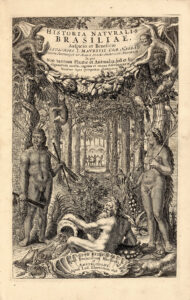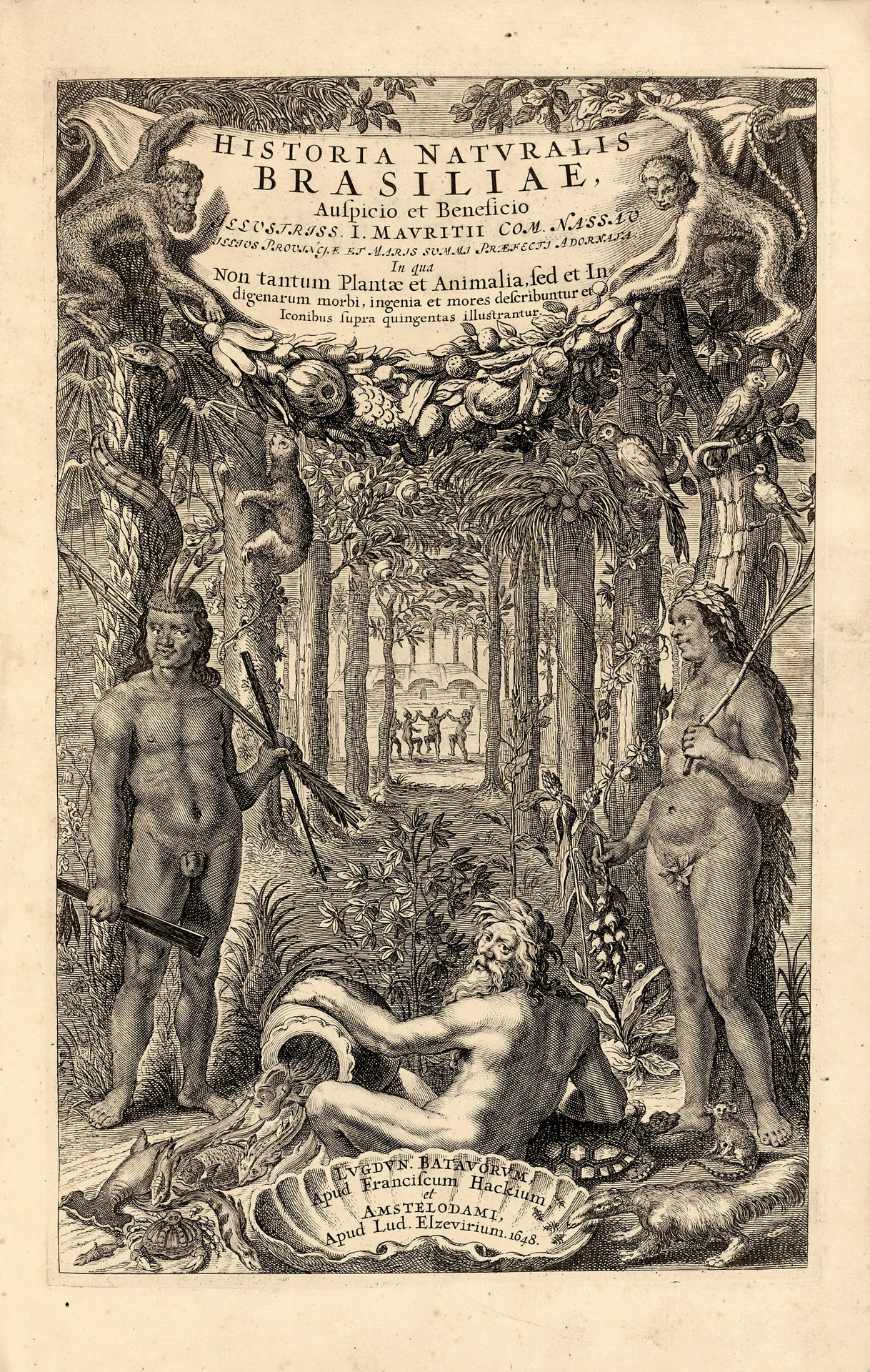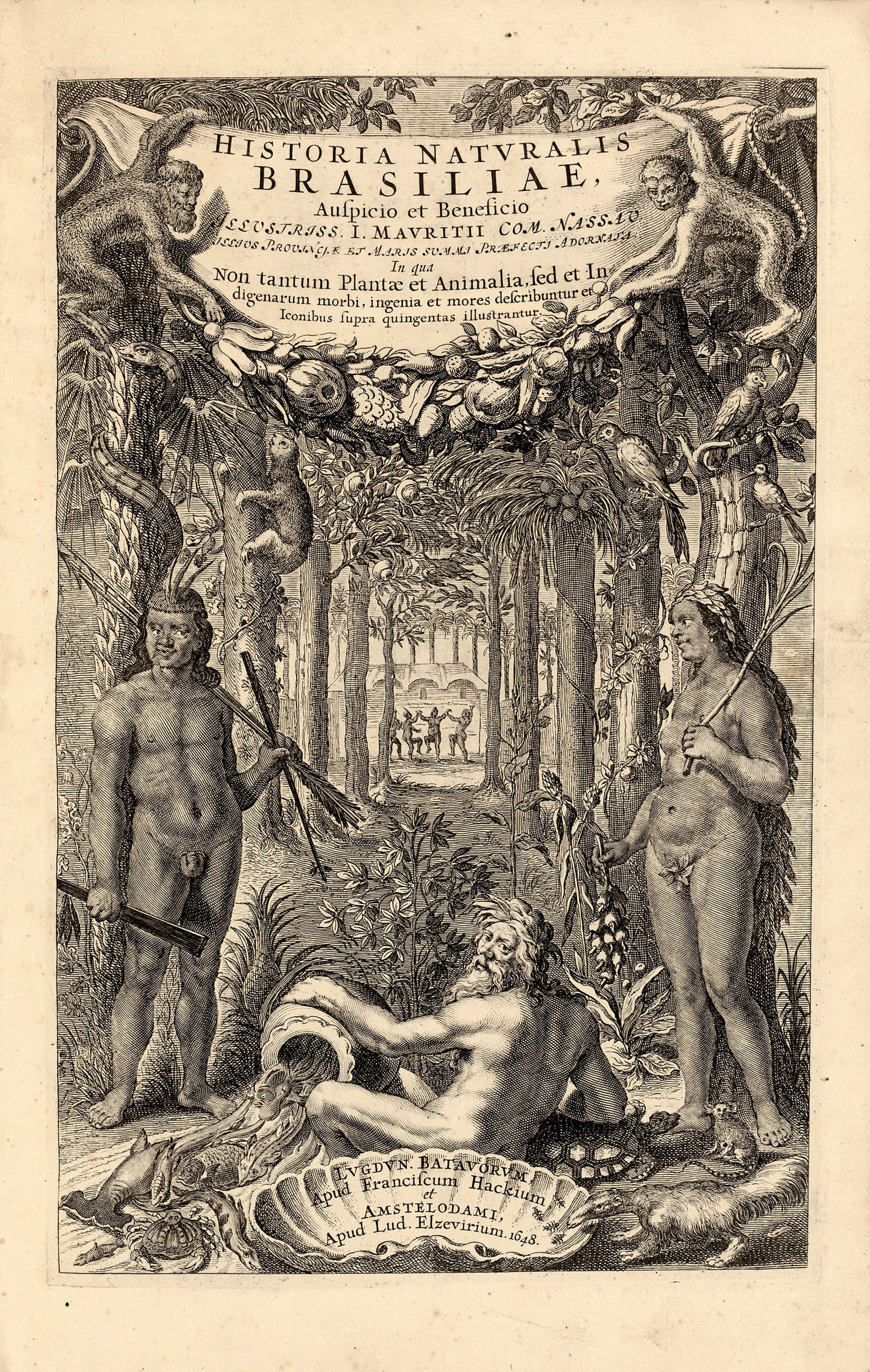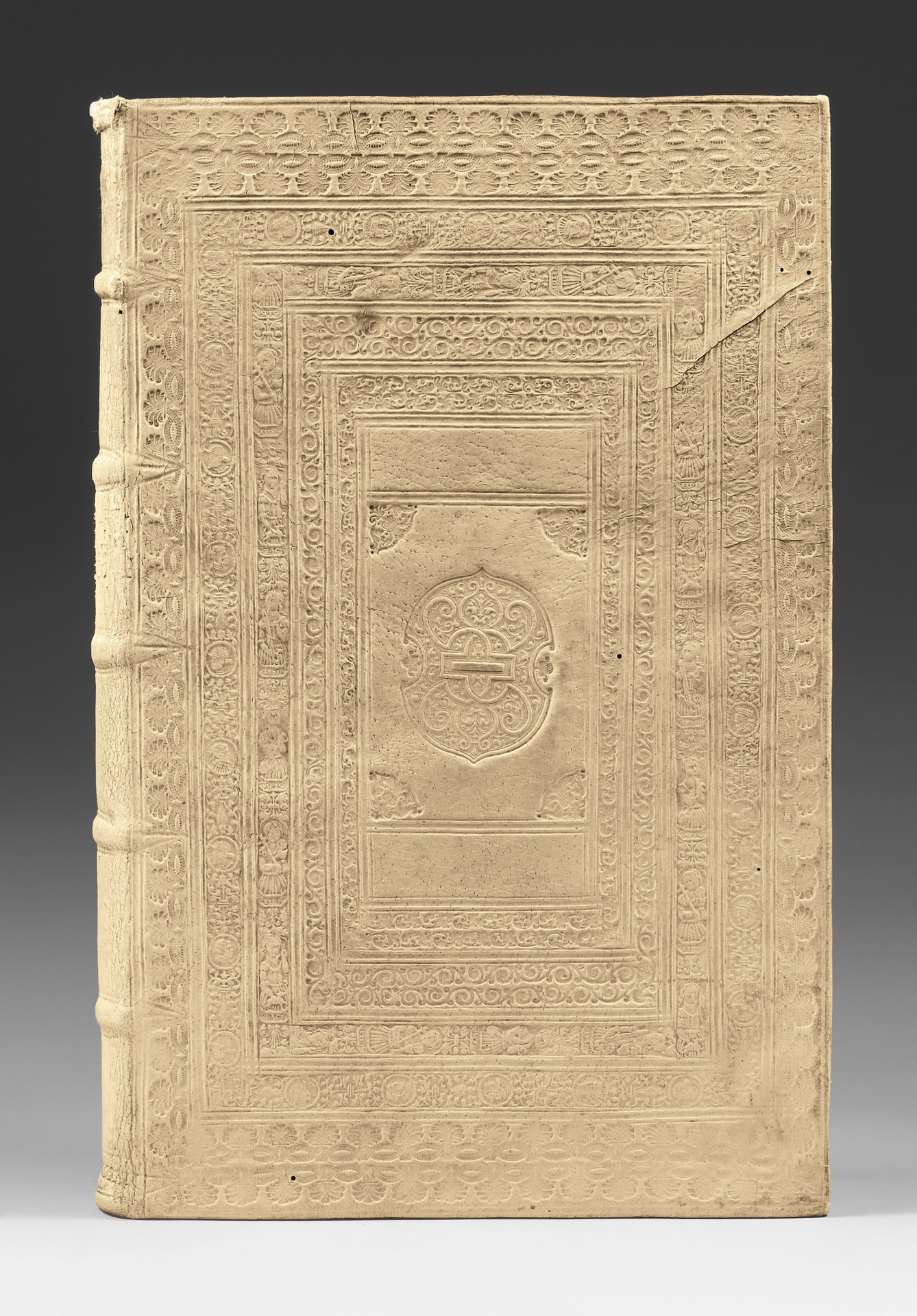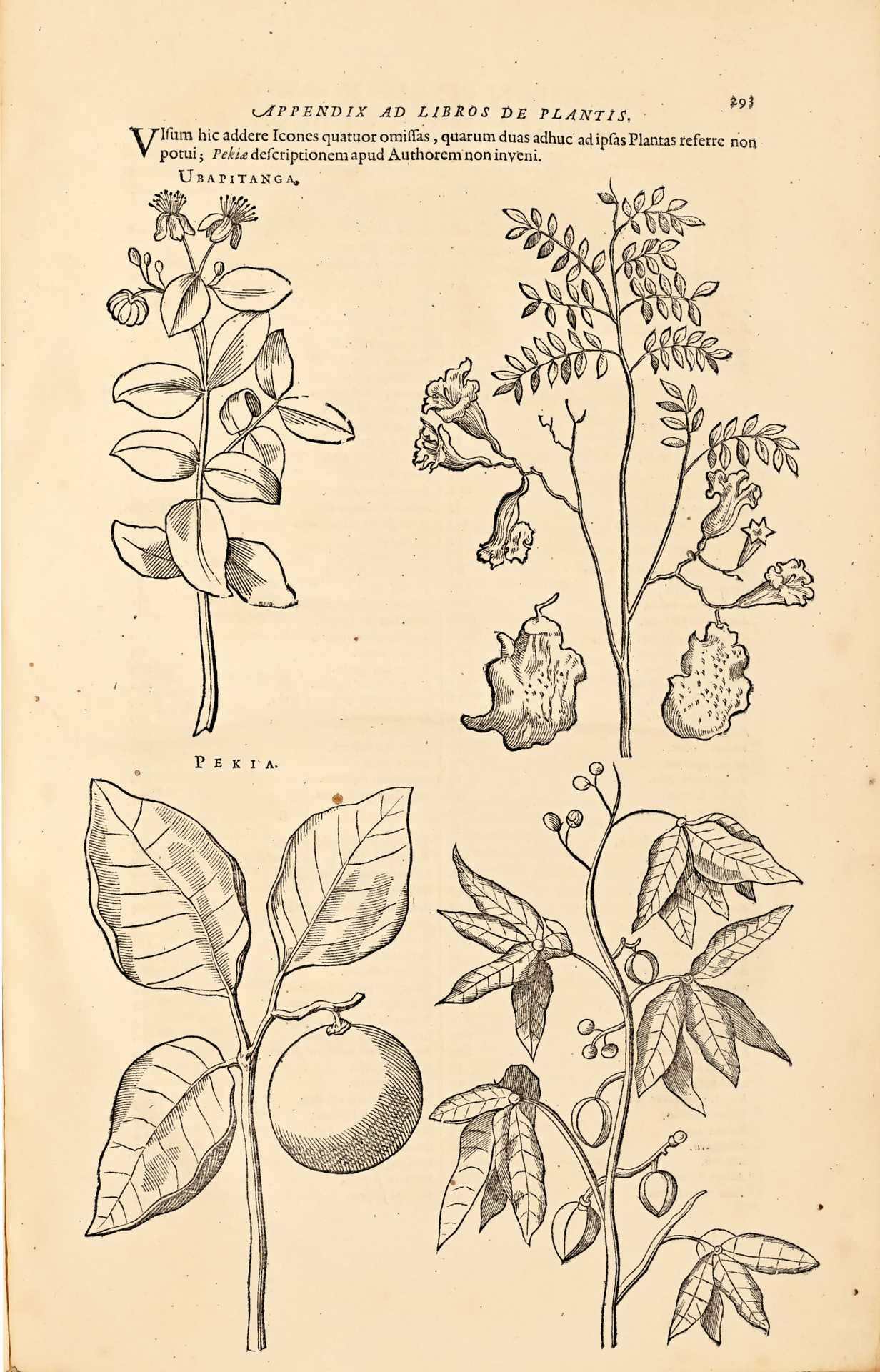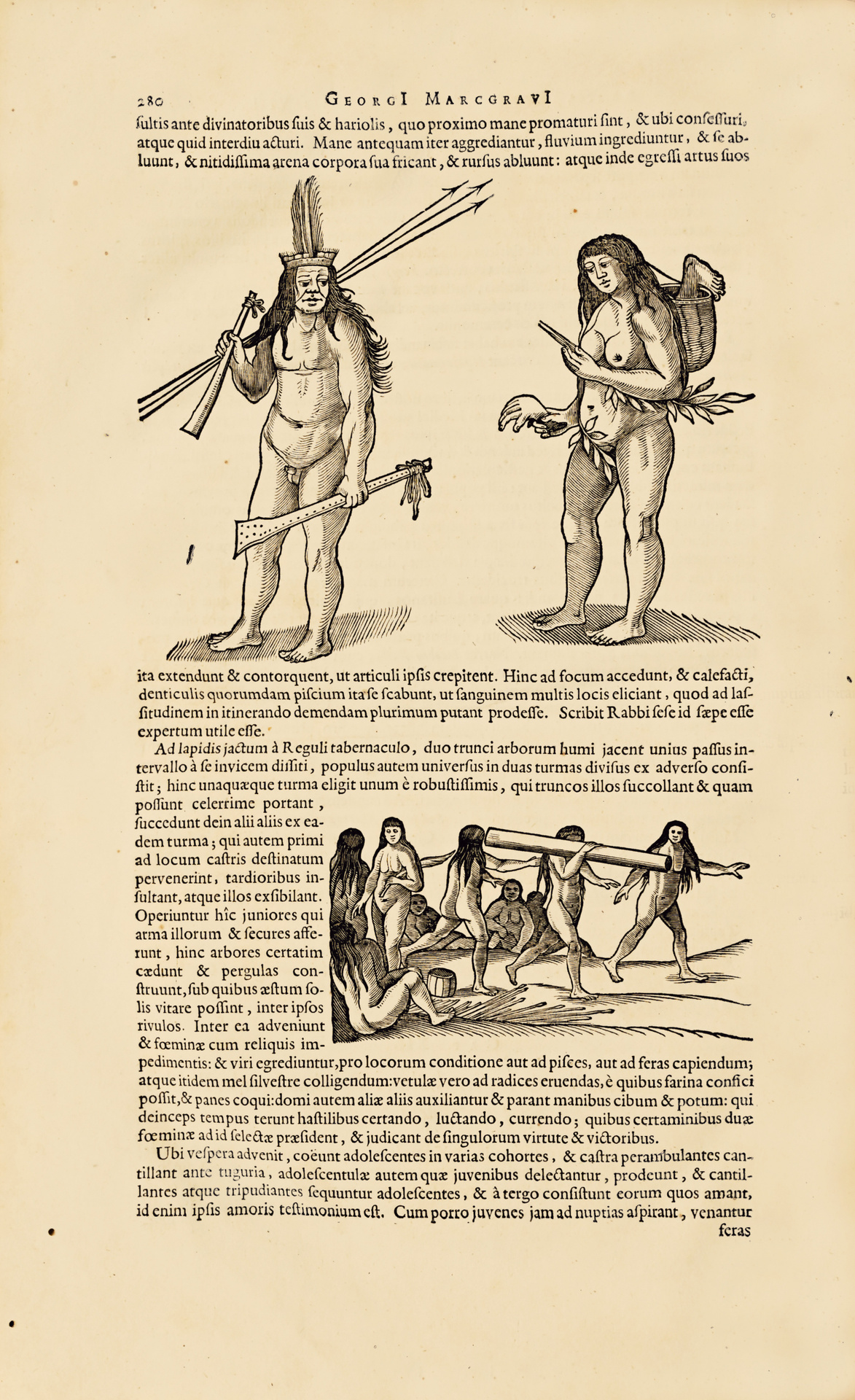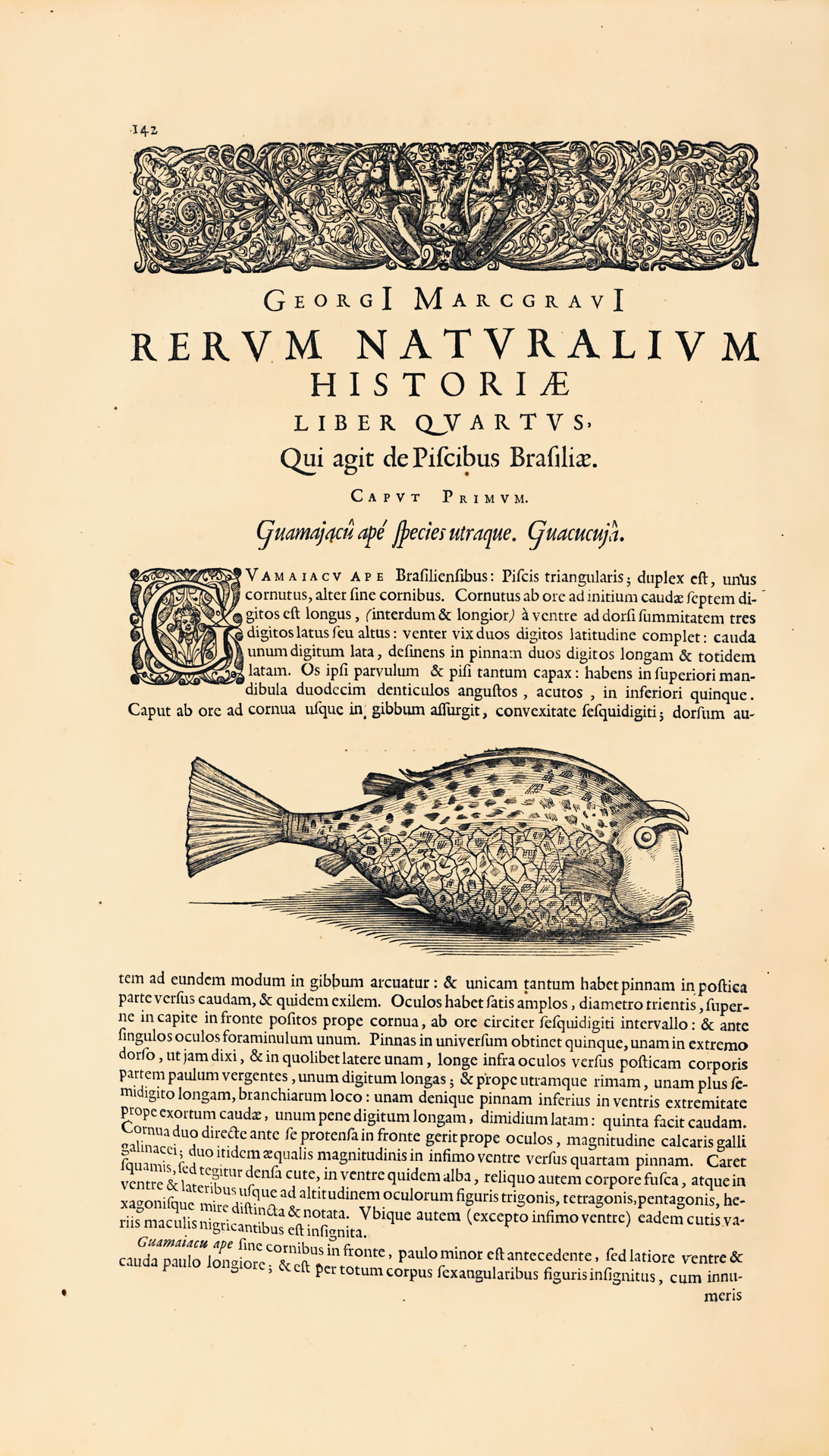Batavorum, apud Franciscum Hackium, et Amstelodami, apud Lud. Elzevirium, 1648.
Folio [365 x 230 mm], (6) ff. including the engraved frontispiece, I/ De medicina brasiliensi libri quatuor: 122 pp. and (1) l. of index; II/ Historiae rerum naturalium Brasiliae, libri octo: (4) ll., 293 pp. and (7) pp. A few foxing and some minor wormtrack. Bound in blind-stamped pigskin over wooden boards, spine ribbed. Contemporary binding.
First edition of one of the most beautiful 17th century books on Brazilian natural history illustrated with 429 woodcuts in the text depicting the flora, fauna: animals, fish, insects and daily life scenes. Borba de Moraes 675-6 ; Garrison-Morton 2263-1 et 5303 ; Hunt 244 ; Nissen BBI 1533 ; Willems 1068 ; Leclerc 1634.
“First edition of this “pioneer work on tropical medicine” (Garrison-Morton) and of what was until the nineteenth century, “the only illustrated work on Brazilian natural history” (Borba de Moraes).
“Valuable collection provinding extracts of the Brazilian gramma by P. Joseph de Archieta and a lexis Latin Brazilian by En. De Moraes.” (Leclerc)
Guillaume Pison went with the prince of Nassau to his travel to Brazil along with two young German scholars, Marggrav and Kranitz, in order to help him in his natural history research. Pison and Margravv’s discoveries were published by Laet under the common title of ‘Historia naturalis Brasiliae’, Leyden, 1648, one fol. vol. Pison introduced more than a hundred new plants, and he is one of those who gave the first details on sugar cane and sugar production. We particularly need to emphasize that he and Marggrav are the ones who brought to Europe and described Ipecacuanba (Psychotria emetica), which was since then adopted by medicine.
A precious and very pure copy preserved in its superb binding in blind-stamped pigskin over wooden boards.
See less information
